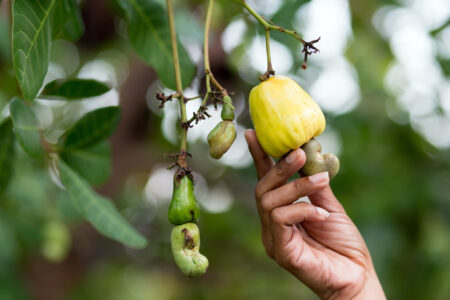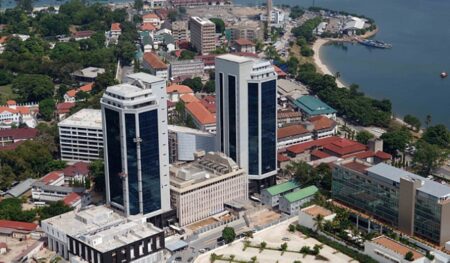- Tanzania inflation hits five year high
- Zanzibar bans export of food commodoties ahead of Holy Month
- China reopens market, expected to speed global recovery
Tanzania’s annual inflation rate has hit its highest point in five years clocking 4.9% in January 2023 and at the close of February the rate was no better.
According to the Tanzania Central Bank The Bank of Tanzania (BoT), the prices of food & non-alcoholic beverages went up by 9.9% up from 9.7% in December of last year.
The BoT monthly economic update report showed similar increase in prices across all sectors and indicator that the cost of living in Tanzania has increased drastically. Wit no matching increase in income, this means that the burden of acquiring daily basic needs like food has become worse for Tanzanians.
With percentages in the brackets here are how several sectors are suffering from price increase in Tanzania: Transportation (6.2% vs 5.1%), restaurants & hotels (2.8% vs 2.7%); clothing & footwear (2.5% vs 2.6%) and furnishings & household equipment (3% vs 3.7%).
The highest rise in prices was seen in the ducation sector where services went up 2.9% vs 0.7% the previous month.
“On a monthly basis, consumer prices inched up by 0.7%, after increasing by 0.8% in the previous month,” reads the BoT report.
The report explains that; “…the outturn was owing to increased food prices as well as import prices of consumer goods, with the latter largely associated with the war in Ukraine.
Despite the heavy toll that the food inflation is having on Tanzanians, the residents would do well to note that their neighboiurs all across the East Africa Community (EAC) and other regions have it worse.
“The rate is the lowest in the East African Community (EAC) and Southern African Development Community (SADC), partly due to the supportive fiscal and monetary policies as well as adequate food supply in the country,” the BoT report reasures stakeholders.
It is not only in Africa that inflation is causing havoc on the standards of living, according to the report; “… global economic growth remains subdued, with high cost of living and low demand.”
To adjust to these tough conditions, nation’s around the world have hard to tighten their belts and pass stringent financial and monetary laws; “… the prime concern for most economies remains curbing inflation.”
However, things are expected to look up as China reopens it doors, economists are of the view with China again in play, we could see a faster global economic recovery. Unfortuanatly, that may not be enough, not with the ongoing war in Russia and Ukraine.
Also Read: Data Vs Floods: Safeguarding Africa’s development
Back on the contient, in Tanzania for instance, food prices have persisitenly gone up for almost one year now!
“Food inflation, which includes non-alcoholic beverages, remained on an upward trend for the eighth month in a row reaching 9.9 percent in January 2023, with prices of all selected major food crops rising,” admits the BoT.
The BoT blames the increase in food prices to ‘higher demand from neighbouring countries coupled with low production in some areas of the country.’
While farmers across several areas in the country are asking for government support due to failed rains, the BoT insists that; “…despite the price increase, food supply remained satisfactory, with the National Food Reserve Agency (NFRA) holding 124,736.2 tonnes of food stocks at the end of January 2023.”
What remains unlclear is whether thee so called ‘satisfactory food reserves’ of just over 124 000 tonnnes stands to meet the demand of a country of 60 plus million people, not to mention the export demand that is adding pressure to these reserves.
It is for this fact that the island of Zanzibar has opted to ban anymore food exports with immediate effect.
Zanzibar bans export of food with immediate effect
Tanzania, both Mainland and Island has been grappling with ever worsening food inflation that is rising the cost of living exponentially as admitted by the BoT monthly economic report.
Also, as explained by the BoT report, the hike in food prices is been worsened by export of food products. That been the case, the solution seems rather obvious and Zanzibar did not hesitate to take it.
With immediate effect, the President of Zanzibar has banned the export of any and all food products from the island.
The move should put the brakes on the accelerating food prices. At the moment, the situation on the ground is grim. Daily staples are barely affordable with the price of maize, the cheaper most affordable staple, is now the same price with some grades of rice, the more expensive staple.
The list goes on, the price of beans, the otherwise most affordable source of protein has shot up right along with its affordable protien alternative, sardines, locally and fondly known as dagaa.
So the move by Zanzibar president has been met with much praise and gratitude. President Mwinyi did not stop at banning food exports to protect the wellbieng of his people, he went a step further and ordered a crackdown on price fixing cartels hoarding, ‘…essential commodities such as sugar, rice and wheat flour to create an artificial shortage and hike prices.’
“This is no less than economic sabotage and they will be punished as such,” the president warned.
“Hoarding commodities is tantamount to economic sabotage…we will investigate to find out traders engaged in that habit. Importers have assured us that there is enough stock of sugar, wheat flour and rice in the country to take us through the Holy Month of Ramadan later this month,” Dr Mwinyi said.
Also Read: Africa: The state of cryptocurrency adoption per country
Tanzania overall inflation outlook
Other than foo prices, the next hike that is putting pressure on living expenses is the price at the pump. As elsewhere in the world, fuel prices were higher during the month under review than in the preceeding month and corresponding month last year.
“However, inflation of energy, fuel and utilities subgroup eased to 6.9 percent in January 2023, down from 7.9 percent in the previous month and 7.3 percent in January 2022, mostly driven by charcoal and firewood prices,” reads the BoT report.
Here we see a troubling spiral; as the country seeks to move to a green sustainable economy, the hike in prices of fuel has forced the public to resort to charcoal and firewood.
The burinng of these dirty fuels may have slowed down the inflation rate of fuel in the country but it is worsening CO2 emissions and the rlated climate change.











